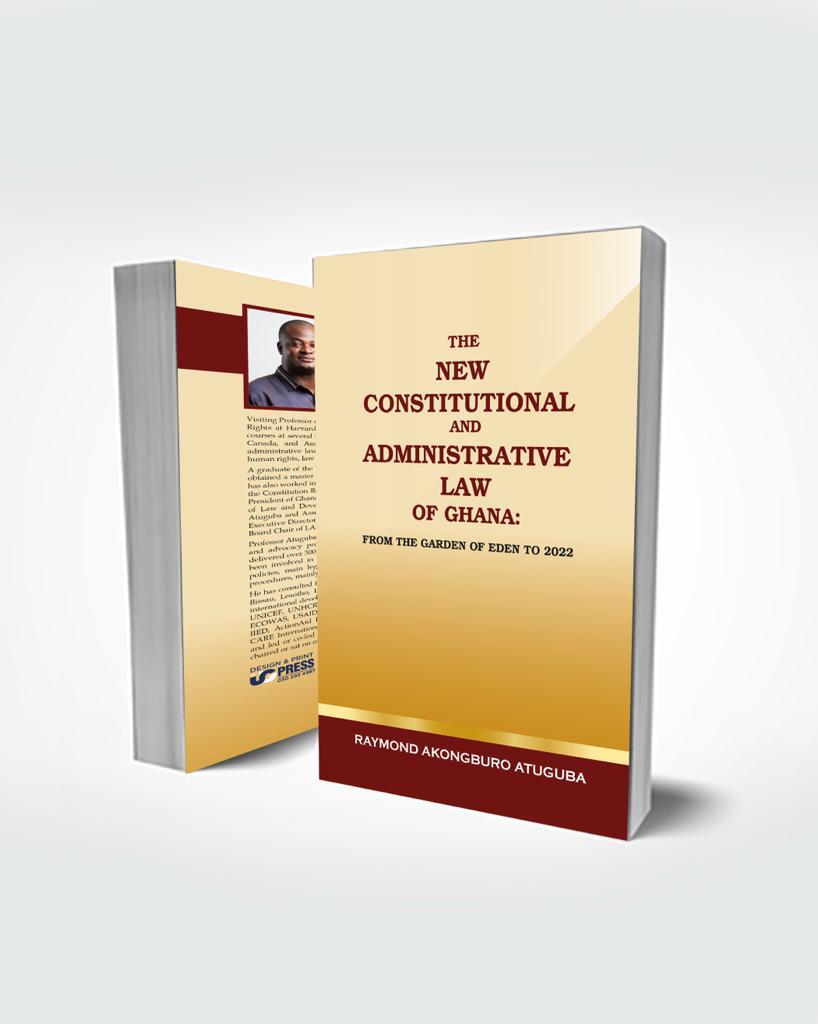New book by Prof Atuguba offers a deep dive into Constitutional and Administrative Law in Ghana
It contains a detailed account of Ghana’s Constitutional Law history and Administrative Law.

Of a comprehensive account and discussion of Ghana’s Constitutional Law history and Administrative Law, Professor of Jurisprudence and Dean of the University of Ghana School of Law, Prof. Raymond Atuguba in his new book, ‘The New Constitutional and Administrative Law of Ghana: From the Garden of Eden to 2022’ takes on this feat.
Running much on its title, it contains a detailed account of the constitutional history of Ghana, including uncharacteristically, an account from the beginning of human existence, through the pre-colonial and colonial eras, to the post-colonial and current eras.
“The book uses the framing of the traditional arms of government to convey the historical evolution of the Constitutional Law of Ghana. This is because it is the constitutional structuring of these branches of government, their interactions inter se and with other estates such as the fourth estate (the media), and what I will call the fifth estate (the people), which produces the distinct constitutional history of this nation,” Prof Atuguba explains.
In its narration, the book also covers all three concepts of ‘Constitution’, ‘Constitutionality’, and ‘Constitutionalism’ and other terms like ‘democratic governance’, ‘good governance’, and ‘people-centred governance’, often characterized by a confusion in their application to governance in Africa. In light of this, the author then recommends clear pathways for better constitutional governance in Africa.
“Whilst it is generally clear that a “Constitution” is a document that contains the most basic, fundamental, even sacrosanct and mostly non-derogable rules for the governance of a Nation-State or other entity, the meaning of “Constitutionality” and “Constitutionalism” are less clear and are often conflated.
The mere existence of a Constitution is not enough for proper governance. A Constitution can lead to Constitutionality or Constitutionalism. Constitutionality is the Rule of Law at a constitutional level; no matter what the content of the Law is that rules. Constitutionalism on the other hand is good governance or people-centred governance at a constitutional level.”
Other parts of the book also treat in extreme detail the entire structure of the State and its components - doing so in a manner that seeks to facilitate the understanding of persons unfamiliar with Ghana's constitutional governance and addresses current revisions of the law for persons already familiar with the system.
It further discusses constitutions and quasi-constitutions that Ghana has had since the 1800s and proclamations of the various military regimes.
“The discussion of these Constitutions and quasi-constitutions, and of the many issues and resulting cases that were produced overtime from the interactions of the five estates around the various provisions of the constitutions and proclamations, are a great exercise in trying to fully understand the operationalisation of the concepts of “Constitution”, “Constitutionality” and “Constitutionalism”. The historical excursus also enlightens the reader as to the local conditions which necessitated the structure of government and the institutions set up under the current fourth Republican era in Ghana.
“I hope that the contents of this book will fill the gaps in the literature on the Ghana Legal System, Ghanaian Constitutional Law, and Ghanaian Administrative Law to a significant extent by imbuing the dry words of the Constitution with substantive content and illuminate and enliven her dimming spirit.”


